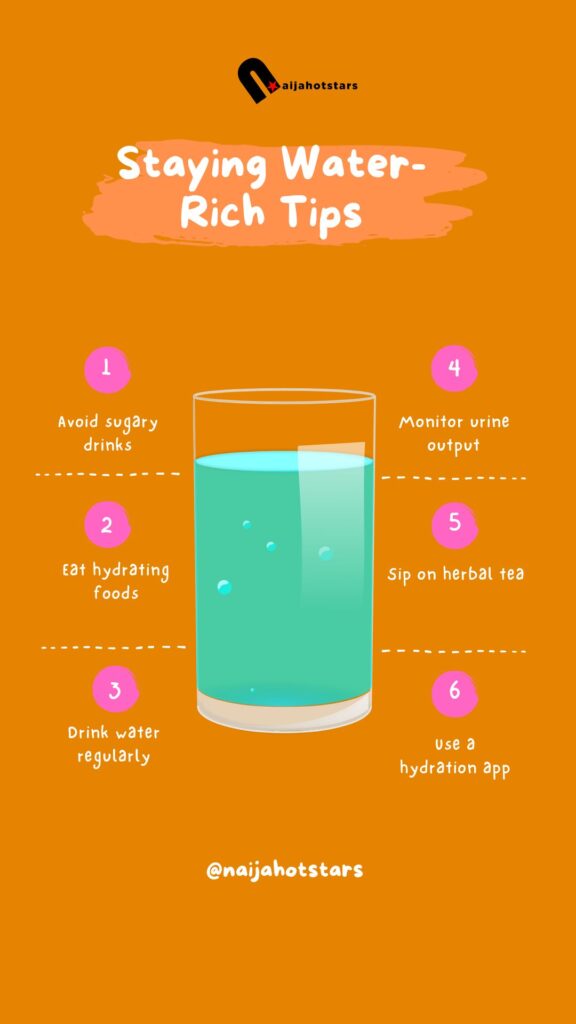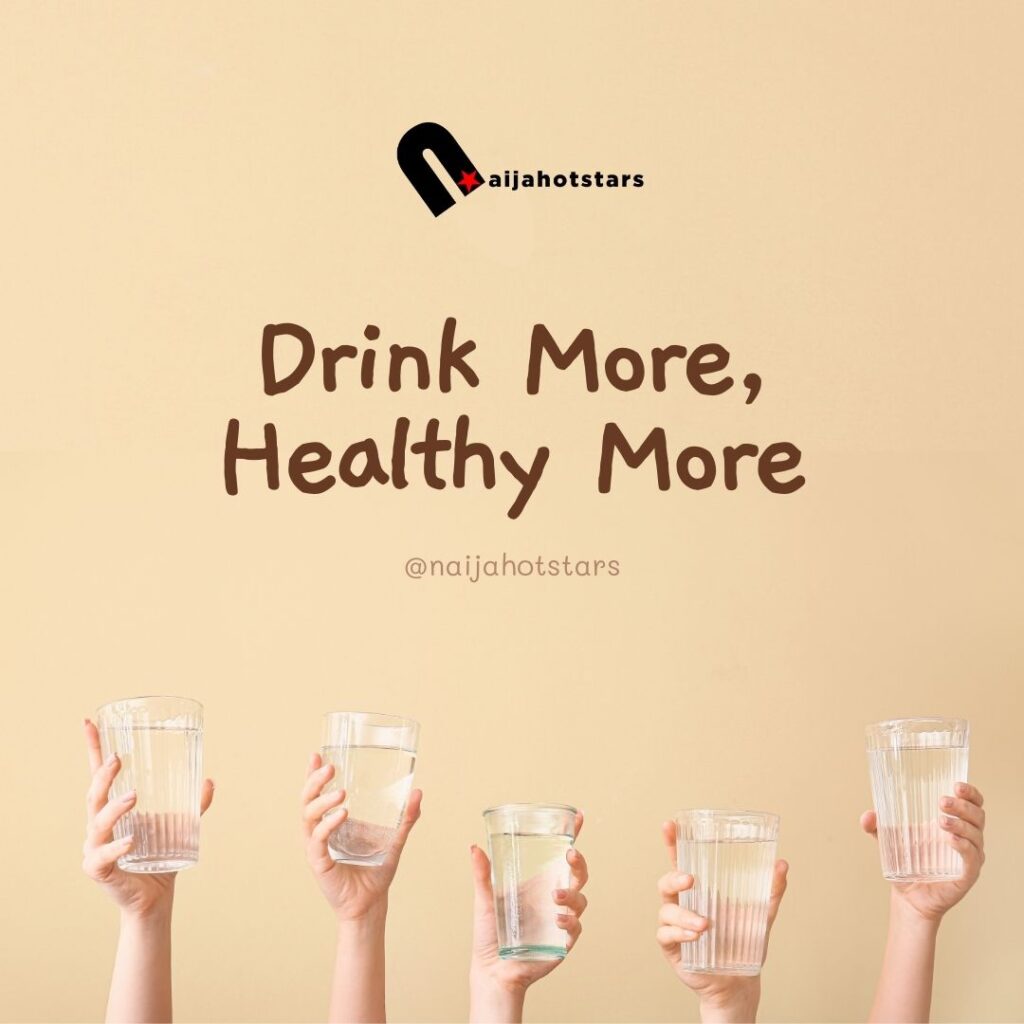“Hydrate or Die (Okay, Maybe Not Die, But You Get the Idea): Staying Water-Rich Beyond 50 is a goal and to achieve that we need to first learn and understand The Importance of Hydration
Introduction:
As we age, our bodies undergo various changes like wrinkles, dry, and slightly shriveled that affect our overall health and well-being.
That’s a sign that you’re getting old, infact it’s a good sign, because we all want to grow old but then, we start looking different from the people around us, and it feels like we should move to a designated planet for aged people. But fear not! We can combat this shriveling effect with the magical elixir of life: water.
Yeye Blogger

Staying hydrated is essential for people of all ages, but it becomes even more critical beyond 50. In this article, we will explore the importance of hydration, the challenges of aging, and provide practical tips on how to stay water-rich beyond 50.
The Importance of Hydration:
Water is like the ultimate BFF (Best Friend Forever) – it’s always there for you, supporting your bodily functions. It makes up approximately 60% of our bodies which you have probably heard of before but never given it some thoughts.
Water is the essence of life and without it, you might experience some challenges like:
- Regulating body temperature
- Transporting nutrients and oxygen to cells
- Removing waste products
- Maintaining healthy skin, muscles, and joints
- Supporting digestive health
On the other hand, lack of Hydration results to Dehydration, which can lead to bagging various health problems listed below.
Problems Caused by Dehydration
- Fatigue and weakness
- Headaches and dizziness (like someone’s banging a drum in your skull)
- Constipation (ahem, no need to elaborate)
- Skin problems (hello, wrinkles and fine lines)
- Urinary tract infections and Kidney stones (ouch, like passing a tiny rock through a fragile pipe, you’re not a construction company, we don’t want to do that)
Challenges of Aging:
As we age, our bodies go through some… let’s call them “natural changes.” which affect our hydration level which include:
1. Decreased thirst sensation (your body’s like, “Meh, water? Been drinking that my whole life, Who needs it?”) Our sense of thirst diminishes with age, making it harder to recognize when we need to drink water.
2. Changes in body composition: Our bodies lose muscle mass and gain fat as we age, which affects our water balance.
3. Decreased kidney function: Our kidneys become less efficient at removing waste and excess fluids, leading to dehydration. (your kidneys are all, “Uh, we’re tired, can we retire?”)
4. Medication side effects: Certain medications can cause dehydration as a side effect.
5. Decreased mobility: (you’re like, “Walking? Too much effort. I’ll just sit here and watch Netflix.”) Reduced physical activity can lead to decreased water intake.
Staying Water-Rich Beyond 50:
To combat the challenges of aging and maintain optimal hydration, follow these practical tips:
1. Drink water regularly: Aim for at least eight glasses of water per day, and make it a habit to drink water at the same times every day.
2. Monitor urine output: If your urine is dark yellow or you’re not urinating frequently enough, it may be a sign of dehydration.
3. Eat hydrating foods: Include water-rich foods like watermelon, cucumbers, and celery in your diet.
4. Avoid sugary drinks: Limit or avoid sugary drinks like soda, juice, and energy drinks, which can dehydrate you further.
5. Stay active: Engage in physical activities that you enjoy, like walking, swimming, or yoga, to help maintain muscle mass and mobility.
6. Manage medications: If you’re taking medications that cause dehydration, talk to your doctor about alternative options or ways to minimize side effects.
7. Use a hydration app: (because, let’s face it, we need reminders for everything) Utilize apps like Waterlogged or Hydro Coach to track your water intake and receive reminders to drink more throughout the day.
8. Make water more appealing: Add slices of lemon, lime, or cucumber to your water to give it a refreshing taste. Voilà, water tastes like a party!
9. Sip on herbal tea: Herbal teas like peppermint, chamomile, and hibiscus can contribute to your daily water intake and offer additional health benefits.
10. Consult your doctor: If you’re concerned about your hydration or experience persistent symptoms, consult with your healthcare provider for personalized advice.

Conclusion:
Staying hydrated beyond 50 is crucial for maintaining optimal health and well-being. By understanding the importance of hydration, acknowledging the challenges of aging, and implementing practical tips, you can ensure you’re getting enough water to support your body’s needs. Remember, hydration is a lifelong process, and it’s never too late to start making a positive change.
There you have it, folks! Staying hydrated beyond 50 is like, well, not dying (exaggeration alert). By following these tips, you’ll be well on your way to a life of water-rich bliss. Remember, hydration is like the ultimate party – everyone’s invited, and the drinks are on the house!
You might want to check out another interesting article titled Understanding the Link between Diet and Mental Health
